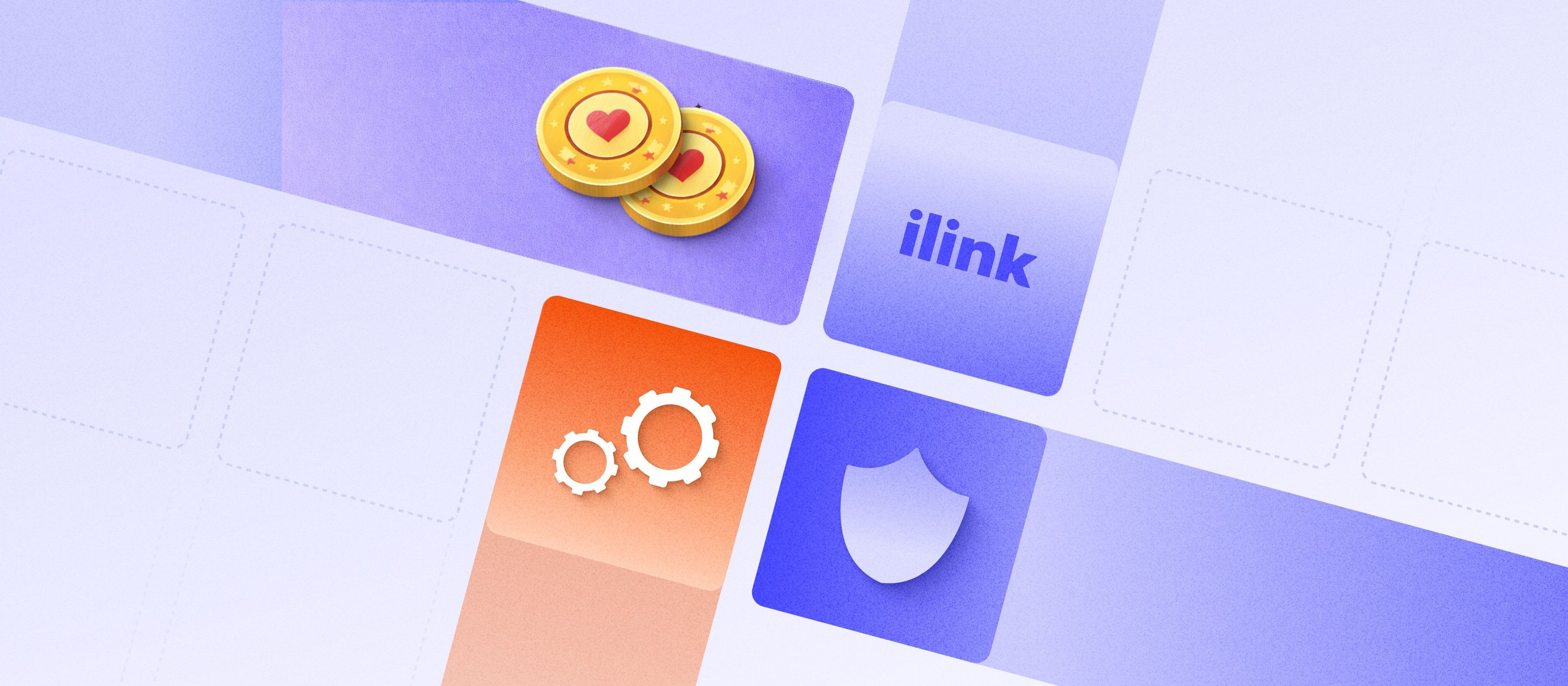Decentralized Social Networks: How Blockchain Is Shaping the Future of Digital Communities
Introduction
In today's interconnected world, social networks play a critical role in communication, business, and community-building. However, growing concerns over privacy violations, content censorship, and the monopolization of user data have exposed the deep flaws in centralized platforms. Blockchain technology offers a new path forward — one that empowers users, enhances transparency, and decentralizes control. As decentralized social networks continue to gain momentum, they are redefining the future of digital communities and opening new opportunities for businesses and innovators alike.
What Are Decentralized Social Networks?
Decentralized social networks are platforms that operate without a central authority. Instead of relying on a single entity to control data, these networks use blockchain technology, peer-to-peer protocols, and smart contracts to distribute ownership and governance among users.
Unlike traditional platforms such as Facebook or Twitter, where a company controls user information and platform rules, decentralized networks give users autonomy over their data and interactions. Technologies like IPFS (InterPlanetary File System) and blockchain consensus mechanisms ensure that content remains secure, tamper-proof, and censorship-resistant.
Why Traditional Social Networks Are Failing Modern Users
As user awareness grows, the limitations of centralized social networks have become impossible to ignore:
- Data privacy breaches. Repeated scandals have shown how user information can be exploited or leaked.
- Censorship and control. Content moderation practices often prioritize corporate or political interests over free expression.
- Creator monetization challenges. Centralized platforms capture the majority of advertising revenue, offering creators limited financial returns.
- Lack of transparency. Users have little insight into how algorithms and data policies are developed or applied.
These issues are fueling a significant shift toward platforms that prioritize user empowerment.
How Blockchain Is Transforming Digital Communities
Blockchain technology is revolutionizing the foundation of digital communities by addressing the deep-rooted problems that plague centralized social platforms. Through decentralization, transparency, and user empowerment, blockchain is reshaping how communities are formed, managed, and sustained. Here’s how:
Immutability and Enhanced Data Security
Blockchain’s core characteristic — immutability — ensures that once data is recorded, it cannot be altered or deleted without network consensus. For digital communities, this guarantees:
- Content authenticity. User-generated content remains tamper-proof, preserving the integrity of information.
- Identity protection. Blockchain-based digital identities minimize the risk of impersonation, hacking, and unauthorized data usage.
- Ownership of personal data. Users control their own information through private keys, eliminating the need to trust centralized servers. By removing single points of failure, blockchain offers unprecedented levels of security and trust in digital interactions.
Transparent Governance and Community-Driven Decision-Making
Traditional platforms impose top-down rules and opaque moderation processes. Blockchain, in contrast, enables:
- Decentralized autonomous organizations (DAOs). Communities can vote on governance policies, platform upgrades, and moderation standards.
- Smart contracts for rules enforcement. Platform behavior is governed by code, not hidden corporate policies, ensuring fairness and predictability.
- Community ownership models. Users can hold tokens representing voting power, aligning platform development with user interests rather than corporate profit. This democratization of decision-making fosters stronger, more engaged communities.
Fair Monetization Through Token Economies
Blockchain introduces decentralized financial systems within communities, allowing users to earn and spend tokens natively. Benefits include:
- Rewarding engagement. Users receive tokens for valuable contributions such as content creation, moderation, and referrals.
- Direct creator compensation. Artists, writers, and influencers can monetize their work directly from their audience without intermediaries taking large fees.
- User-driven marketplaces. Communities can establish peer-to-peer marketplaces where goods, services, and digital assets are exchanged freely. Tokenized incentives create more sustainable ecosystems where value flows back to participants, not just platform owners.
True Interoperability and Data Portability
Blockchain enables users to control their identities and assets independently of any single platform. With decentralized identity (DID) solutions:
- Seamless movement. Users can carry their reputation, assets, and connections across multiple decentralized platforms without losing history or credibility.
- Breaking platform monopolies. No single company can lock users into closed ecosystems.
- Cross-platform collaboration. Different platforms can interact with each other through shared protocols, expanding the scope and utility of digital communities. This freedom fosters innovation, competition, and user empowerment.
Building Trust Through Transparency
Blockchain’s open ledger system allows anyone to verify platform activities:
- Proof of integrity. Transactions, governance votes, and content records are publicly auditable.
- Fighting misinformation. Transparent source verification can mitigate the spread of fake news and manipulated content.
- Accountability for platforms and users. Clear records of interactions ensure that both platforms and community members are held responsible for their actions.
Transparency builds a culture of accountability and mutual trust, critical for healthy digital ecosystems.
Unlocking New Models of Community Ownership
Perhaps most significantly, blockchain empowers users to become stakeholders, not just participants. Communities can:
- Issue tokens for ownership stakes. Early users can share in a platform's financial success.
- Launch community-funded initiatives. Through token-based crowdfunding or governance voting.
- Operate independently. Communities can exist without reliance on external investors or controlling corporations. This shift creates more resilient, self-sustaining communities driven by collective goals rather than corporate agendas.
Real-World Examples of Decentralized Social Networks
Several platforms are already demonstrating the viability and appeal of decentralized social networking:
- Lens protocol. A blockchain-based social graph allowing users to own their content and social connections.
- Mastodon. An open-source, federated network offering decentralized alternatives to Twitter-like experiences.
- Farcaster. A protocol focused on portability and user ownership, allowing users to retain their identity across applications.
- Steemit. A blockchain-based blogging and social platform where users earn cryptocurrency for their contributions.
These examples highlight the growing demand for digital environments that prioritize user agency and transparency.
Opportunities for Businesses and Startups
The rise of decentralized social networks is not just a trend — it’s a transformative shift that presents enormous opportunities for businesses and startups willing to innovate early. By embracing decentralized models, organizations can unlock new growth channels, strengthen customer relationships, and build resilient digital ecosystems. Here's how:
Creating Niche, Value-Driven Communities
Decentralized platforms enable businesses to build tightly focused communities around specific industries, interests, or ideologies:
- Vertical social networks. Platforms tailored to professionals (e.g., legal, healthcare, fintech) or enthusiasts (e.g., gaming, fitness, arts).
- Private token-gated communities. Only users holding a specific NFT or token can access exclusive content, events, or networking opportunities.
- Community-driven brand building. Empowering users to participate in brand evolution through governance votes fosters loyalty and advocacy.
By targeting well-defined audiences, businesses can drive higher engagement and create stronger, self-sustaining communities.
Building Early Mover Advantage in the Web3 Space
Just as early adopters of social media in the 2010s secured dominant digital footprints, businesses that pioneer decentralized social spaces today can:
- Establish thought leadership. Position their brand as an innovator and leader in the future of digital interaction.
- Capture new market segments. Appeal to digitally native users, crypto enthusiasts, and privacy-conscious consumers.
- Create competitive moats. Proprietary decentralized communities are harder for competitors to replicate compared to traditional social pages.
First movers in decentralized platforms will enjoy long-term advantages as Web3 adoption accelerates.
Launching New Revenue Models
Blockchain-enabled networks allow businesses to create alternative income streams beyond advertising:
- Tokenomics and microtransactions. Introduce native platform tokens for tipping, rewards, or paid features.
- NFT-based content and access. Sell digital collectibles, exclusive content, or memberships using NFTs.
- Decentralized Ad models. Enable users to control their own advertising experiences and earn from ad interactions, leading to better-targeted and higher-converting campaigns. These models open new paths to monetization that are fairer, more transparent, and often more lucrative.
Strengthening Trust and Loyalty
In an age of digital skepticism, decentralized networks offer a way to build authentic relationships with audiences:
- Transparency and fairness. Open-source governance models foster trust by letting users see how decisions are made.
- Data sovereignty. Giving users control over their personal data differentiates brands from data-hungry competitors.
- Shared ownership. Offering users a financial stake (via community tokens) transforms passive audiences into active partners.
Trust will become a major currency in Web3, and decentralized communities position businesses to earn and maintain it.
Developing New Partnership Ecosystems
Decentralized platforms encourage collaboration over competition:
- Cross-platform integrations. Partner with other decentralized apps (dApps) to offer enhanced functionality or bundled services.
- Joint ventures on shared infrastructure. Co-develop community governance layers, token standards, or marketplaces.
- Decentralized identity (DID) systems. Enable seamless onboarding and authentication across multiple services, expanding user convenience and reach.
Such partnerships are easier and more productive in decentralized environments where common standards and shared incentives thrive.
Future-Proofing Against Regulatory Risks
As governments increasingly scrutinize centralized tech giants for monopolistic behavior and privacy violations, decentralized platforms offer a strategic advantage:
- Compliance through transparency. Blockchain’s auditability simplifies regulatory reporting and demonstrates compliance.
- User-centric models. Platforms built on principles of privacy, consent, and data minimization will align better with evolving data protection laws like GDPR and CCPA.
Businesses that invest now in ethical, decentralized alternatives can future-proof themselves against tightening regulatory environments.
Key Challenges and Considerations
Despite the potential, building and operating decentralized social platforms comes with challenges:
- Technical complexity. Developing scalable and user-friendly decentralized applications (dApps) requires advanced blockchain expertise.
- Adoption barriers. Users are accustomed to the seamless UX/UI of traditional apps, requiring innovative design approaches.
- Regulatory uncertainty. Evolving regulations around digital assets and user rights must be navigated carefully.
- Infrastructure decisions. Selecting the right blockchain protocol and ensuring robust scalability is critical for long-term viability.
Strategic planning and expert technical guidance are essential to overcoming these hurdles.
How ilink Helps Build Decentralized Social Platforms
At ilink, we specialize in building decentralized applications tailored for the future of digital communities. Our blockchain development team designs scalable, secure, and user-centric platforms that meet the complex demands of Web3 ecosystems. From custom smart contract development to token integration and governance framework design, we help startups and enterprises create decentralized social networks that empower users and drive innovation. Partner with us to unlock the next generation of social engagement.
Decentralized social networks represent a seismic shift in the way digital communities are built, managed, and monetized. Blockchain technology is driving a future where users have true ownership, free expression thrives, and businesses can create more equitable platforms. As the movement toward decentralization accelerates, companies that act now will lead the transformation. If you're ready to explore the possibilities of building a decentralized social platform, our team at ilink is ready to help you shape the future.
Comments (0)
Latest Posts
Learn how to build an online casino that scales: games, payment options, compliance basics, risk controls, and operational automation for growth.
Discover how automated AI call centers reduce operational costs, improve customer experience, and increase revenue. Learn about ROI, real statistics, integrations, and scalable AI solutions for modern businesses.
Do You Have Any Questions?
Leave your details - we will contact you to answer all your questions




